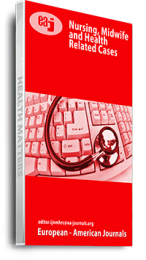Background: Puerperal psychosis is a rare psychiatric emergency in which symptoms of high mood and racing thoughts, depression, severe confusion, loss of inhibition, paranoia, hallucinations and delusions set in, beginning suddenly in the first two weeks after childbirth. For the fact that majority of pregnant women perceived Cesarean section as a complicated birth option, various complications attached to the Post Cesarean section have proven that, there is need for special attention on caesarean section option. Methodology : A descriptive survey research design was employed. A total of 38 respondents were selected using judgmental and convenience sampling techniques due to the busy schedule of these health practitioners after determining the sample size using the Okpanachi (2011) restructured Yemane (1967) sampling model. Data were collected using self structured questionnaire that was pilot tested with the Cronbach Alpha of 0.78. Data collected were analyzed with SPSS software using both descriptive and inferential statistics. Results: The study revealed that the incidence of Puerperal psychosis among Post Cesarean section patient was very high, Knowledge of Respondents on Puerperal psychosis was also high, the identified causes of Puerperal psychosis among Post Cesarean section patient include, history of bipolar disorder, schizophrenia, prior episode of postpartum psychosis, or a family history of postpartum psychosis, Mutations in chromosome and in specific genes involved in serotoninergic, hormonal, and inflammatory pathways, giving birth for the first time, Depression or anxiety during pregnancy, stressful recent life events, poor social support and a previous history of depression. the identified Management strategies employed towards control of Puerperal psychosis among Post Cesarean section patient include, Psycho-education and psychotherapy, Pharmacotherapy, Lithium Treatment and Prophylaxis, Antiepileptic drugs (AED). However, Electroconvulsive Therapy and Breastfeeding of baby are alternative methods often used to manage Puerperal psychosis. Conclusion: It was concluded that family care and financial status of family were also very good predictor of Puerperal psychosis, thus Management of Health facilities should intensify the need for self financial assessment before planning on having babies.
Keywords: Evaluation, General Hospital, Patients, Perceived Causes, Post Ceasarean Section, Puerperal Psychosis

